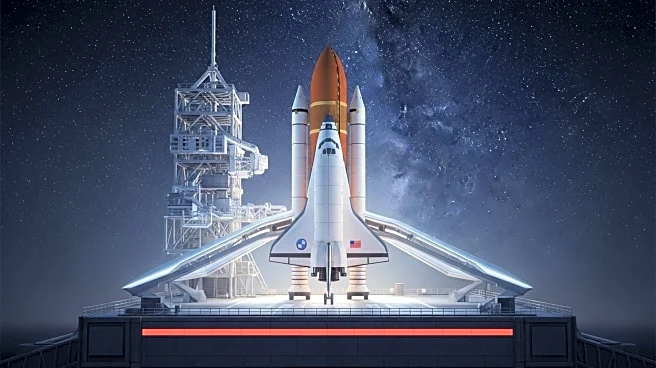What is the story about?
What's Happening?
Frontier Space, a UK-based biopharma startup, is preparing for its next mission following mixed results from its SpaceLab experiment aboard ATMOS Space Cargo's Phoenix 1 reentry capsule. The mission validated the core technology of SpaceLab Mark 1 but failed to collect performance data from its microfluidics chip, designed for biological and chemical experiments in space. Despite this setback, Frontier Space confirmed that essential systems performed nominally. The company plans to launch a second SpaceLab next year to gather the missing data and further develop its technology for in-orbit bio research.
Why It's Important?
Frontier Space's efforts to develop space-based biopharma technology could revolutionize drug testing and development. By conducting experiments in microgravity, researchers can gain insights into biological processes that are not possible on Earth. This technology has the potential to accelerate pharmaceutical research and development, offering new opportunities for drug discovery and production. Additionally, the ability to generate precursors for astronaut food in space could support long-term human missions beyond Earth, contributing to the sustainability of space exploration.
What's Next?
Frontier Space aims to scale up its SpaceLab platform, allowing research institutions and pharmaceutical companies to conduct more extensive experiments in space. The next mission will focus on addressing the data gaps from the previous flight, particularly concerning the microfluidics chip. As demand for in-orbit bio research increases, Frontier Space plans to enhance its technology with rotary valves for more iterative testing. This expansion could lead to broader adoption of space-based research by large pharmaceutical companies, potentially transforming the biopharma industry.
Beyond the Headlines
The development of space-based biopharma technology raises ethical and regulatory questions about conducting biological experiments in space. As this field grows, it will be important to establish guidelines and standards to ensure the responsible use of space environments for research. Additionally, the collaboration between space startups and pharmaceutical companies could lead to new business models and partnerships, driving innovation in both industries.















